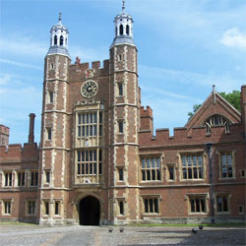The NCVO has applied to intervene in the Attorney-General’s reference and the judicial review of the Charity Commission’s interpretation of the law relating to the public benefit of independent schools.
A preliminary hearing of the two sets of proceedings is due to be held in the Upper Tribunal (Tax and Chancery) on 18 April. At this hearing the NCVO will be permitted to argue why it should be allowed to make oral representations for up to an hour at the final hearing of the AG’s reference in May.
The NCVO has to file any evidence it seeks to rely on in both sets of proceedings, by 28 February, and must submit its skeleton argument by 4 April. Asked by Civil Society why it wished to intervene in the case, a spokeswoman would only say: “This is a long-standing issue central to our campaign for reform.”
The Education Review Group, which was set up to provide independent evidence to the Charity Commission on the meaning of public benefit in the education sector, has also applied to intervene in the case. The interveners have agreed not to seek costs against the parties in the case – the Independent Schools Council (ISC) and the Charity Commission - and the parties have agreed not to seek costs against the interveners.
The ISC was granted permission for a judicial review of the Commission’s guidance last October. It will be heard alongside the AG’s reference which asks the Commission to provide details of how its public benefit guidance will apply to fee-charging independent schools.
The NCVO’s involvement in the issue of public benefit of independent schools stretches back many years. In early 2003 it spearheaded a group called the Charities Bill Coalition which lobbied for new charity legislation that would challenge the automatic presumption that public schools provide public benefit. At the time an NCVO spokesman said: "What message does it give to the public if places like Eton are considered charities?"
And in 2005 the umbrella body supported an amendment to the Charities Bill that would have required the Charity Commission to “consider the effect on public benefit of the charging policy of any charity” before writing its guidance for charities on public benefit.
But the amendment, tabled by Lord Phillips, failed after the House of Lords voted against it by 139 to 60.









